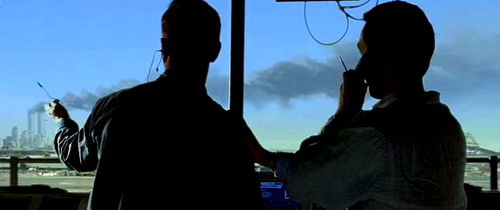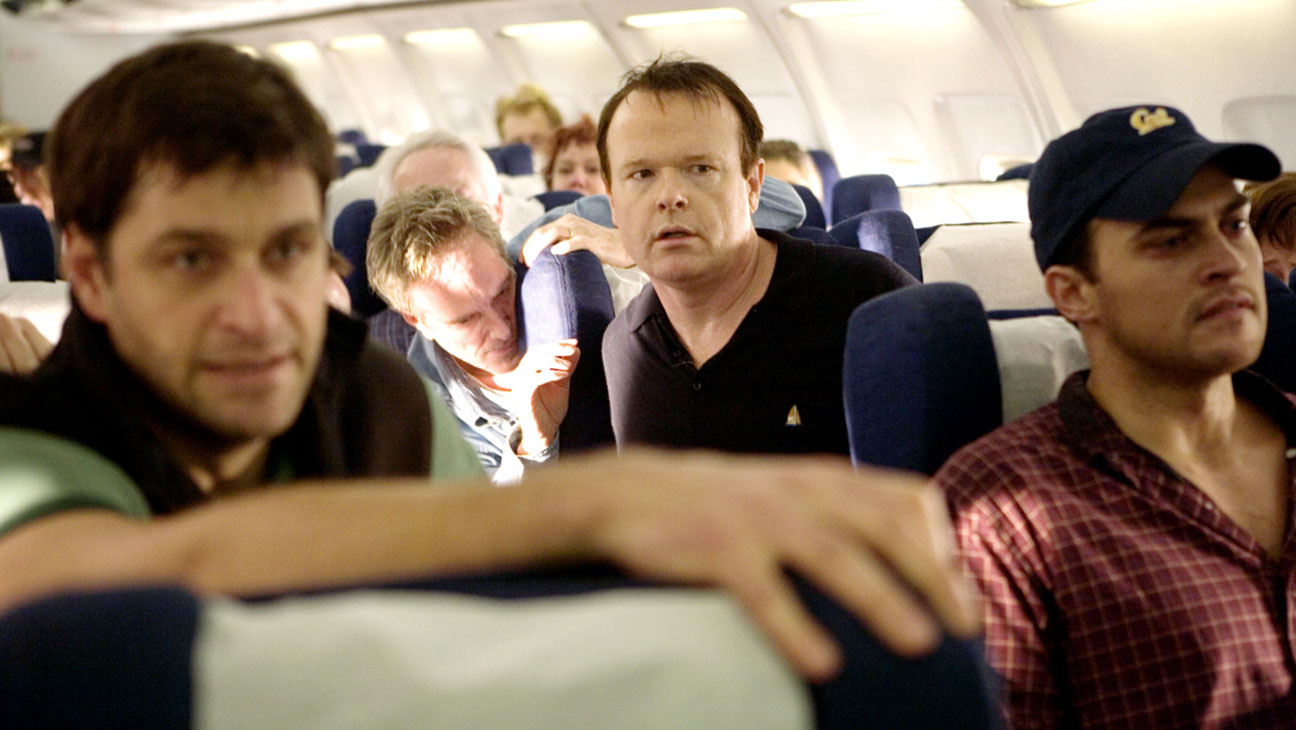United 93, ten years on
 Thursday, April 28, 2016 at 7:20PM
Thursday, April 28, 2016 at 7:20PM David here, looking back at one of 2006's most contentious films ten years down the line.
I don't imagine many of us have watched United 93 more than a couple of times in the ten years since it debuted. Five years on from 9/11, it felt painfully raw and keenly sensitive, its depiction of the tragic events rendered with a wrenching immediacy borrowed from the handheld footage that had dominated the news coverage of events. It was, gruesomely, a cultural moment that instituted the world of smartphones and social media, news bursting from unpredictable sources, the traditional media outlets left as responsive collators of private material. United 93 showed us the reality of events with such intimacy that cinema's own mannered approaches towards realism rapidly became outmoded.

Fifteen years on, with global political disasters lived and not really learned, Paul Greengrass' film has the feel of a recurring injury: practically healed but niggling with every other step. 9/11 still hangs like a spectre over our lives because of the chaos and death it provoked, and the xenophobic attitudes that still darken the political climate in countries led by the UK, and, most critically, the USA. To watch United 93 now is to refresh rusty memories of how personal and individual that day was, for passengers, observers and hijackers alike. Greengrass' first masterstroke is beginning the film in the hijackers' hotel room, hearing their prayer and seeing an anxious face; their actions may be monstrous but their sacrifice and trepidation is utterly, terribly human. By refusing to demonise them and instead step back and observe, Greengrass lets the power of their unthinkable actions resonate so much more deeply.
 It was the peak of the handheld aesthetic, two years before Cloverfield's incredible shakycam turned the critical tide. Barry Ackroyd's camera crouches down in the seats with the terrified passengers and stands imposingly behind the hijackers in the cockpit, the claustrophobia of the situation compounded by the revelatory use of sound, which focalises the audience's gaze without using a flat mono soundtrack; this is realism and cinema working in perfect tandem. It was really the only fair balance to strike when honouring a group of people from whom we only knew names and a few desperate phonecalls; Greengrass shows us the passengers' heroism without deifying them, by making their ordinariness their very strength.
It was the peak of the handheld aesthetic, two years before Cloverfield's incredible shakycam turned the critical tide. Barry Ackroyd's camera crouches down in the seats with the terrified passengers and stands imposingly behind the hijackers in the cockpit, the claustrophobia of the situation compounded by the revelatory use of sound, which focalises the audience's gaze without using a flat mono soundtrack; this is realism and cinema working in perfect tandem. It was really the only fair balance to strike when honouring a group of people from whom we only knew names and a few desperate phonecalls; Greengrass shows us the passengers' heroism without deifying them, by making their ordinariness their very strength.
As the plane takes off, the pilot makes the standard genial remarks about the view out of the window, and we momentarily glimpse the very top of the World Trade Center towers from one of the small plane window holes, their isolation on the skyline a foreboding visual note. Likewise, the camera lingers long enough to throw the film out of its quick early pace just to hear the announcement of the flight. Ordinary sights and sounds become loaded with intent because of what they have come to mean since an ordinary day became one of history's bleakest. United 93 memorialises the spirited bravery this group of people demonstrated in the face of death, and remains a vivid, earnest record of a devastating moment in recent history.



Reader Comments (6)
I still think this is an extraordinary, visceral film. I remember the murmer when Greengrass' name was announced on nomination morning, too.
This film is so good, but it makes me feel physically sick when I watch it. The unbearable tension, followed by the horrific realisation. It's distressing watching the confusion, the time wasted and the mistakes made. As it should be.
I've never been entirely comfortable with Greengrass' decision to depict the final moments on the plane. There's no way of knowing what really happened, and combined with the ultra realism of the rest (with some of the day's participants playing themselves), it feels like dicey territory ethically. There's no doubting that it is a major achievement in a lot of ways, but that one aspect never quite sat right with me.
Such a powerful, well made movie. Very hard to watch, which is why I am guessing it didn't get as much attention as it deserved when it came out.
I don't think this movie gets enough credit for having a huge portion of its cast playing themselves. Ben Sliney, in particular, is incredible.
Greengrass gets a lot of praise for this (rightfully so), but the editing is absolutely flawless. It never stays in one spot but never feels confusing. My favorite part of the film is how it is put together. Probably my favorite Tech Oscar nomination in the last 15 years